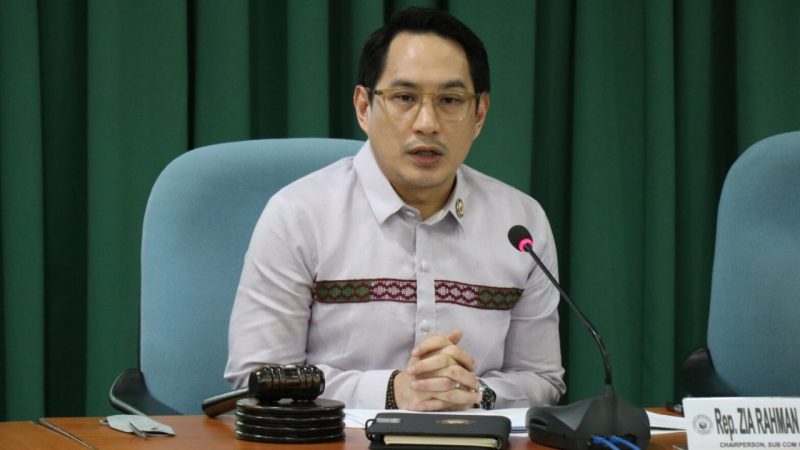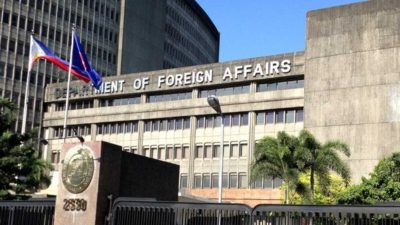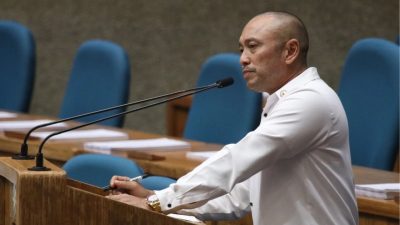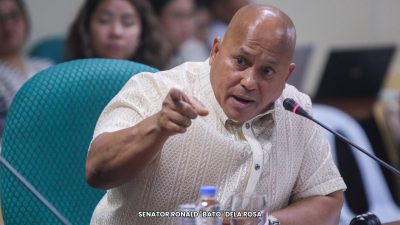By Junex Doronio
MANILA – A House leader insisted on Tuesday (December 17, 2024) that the Philippine Health Insurance Corp. (PhilHealth) has more than enough reserve funds to cover the health needs of Filipinos, contrary to false claims circulating on social media.
“Fake news po ang kumakalat na ‘bawal daw magkasakit next year’ dahil walang pondo ang PhilHealth, matapos itong hindi bigyan ng premium subsidy sa 2025 budget,” said House Assistant Majority Leader and Lanao del Sur Rep. Zia Alonto Adiong.
During recent congressional hearings, Adiong revealed that lawmakers learned PhilHealth’s investible funds have reached P504 billion.
In addition, Adiong stated that PhilHealth officials reported a surplus reserve fund of P183 billion, as well as two unutilized Special Allotment Release Orders (SAROs) amounting to P42 billion.
“Thus, it’s clear that the state health insurer has more than enough to cover the health needs of Filipinos even for the next two years,” Adiong stressed.
The substantial reserve exceeds the statutory requirement, which mandates PhilHealth to maintain a reserve fund equivalent to two years’ worth of average benefit payments. The Department of Finance estimates this requirement at P280 billion, or P140 billion per year. PhilHealth’s current reserves far surpass this threshold, underscoring its financial stability, Adiong said.
“Note, too, that even without premium subsidies from the government, annual premium collections from direct members are sufficient to cover the average benefit spending of P140 billion,” Adiong said. “Ultimately, the question is: why does PhilHealth have over P500 billion in investments, when its primary mandate is to spend to save the lives and pockets of our kababayans, not to earn interest?”
In the proposed 2025 national budget, the bicameral conference committee allocated no funding for PhilHealth subsidies. This decision was based on PhilHealth’s ample reserves and investible funds, which are considered sufficient to cover its obligations without additional government support.
Adiong further explained that, on orders from the Department of Finance (DOF) earlier this year, the state insurer returned unused reserve funds to the national treasury, providing further proof of its surplus. Additional transfers were halted, however, by a Supreme Court (SC) temporary restraining order.
Despite the absence of new subsidies, Adiong emphasized that PhilHealth’s financial health remains strong.
He noted that PhilHealth’s investible funds were reported at P504 billion, indicating a strong capacity to meet future claims and even expand benefit packages.
Under the Universal Health Care Act, when PhilHealth possesses excess funds, it has the authority to either expand benefits or reduce premium contributions.
While there have been calls from Congress to implement both measures, Adiong pointed out that PhilHealth has already initiated benefit increases, such as enhancing the hemodialysis benefit package.
However, he acknowledged that the expansion of other benefits, particularly in primary care services like the Konsulta package, has been gradual, despite an additional budgetary support of P42 billion in the last two years.
Given these resources, Adiong reiterated that the warnings circulating about PhilHealth’s financial incapacity are baseless.
“Wag po tayong magpabudol. PhilHealth’s substantial reserves and ongoing benefit enhancements ensure that Filipinos will continue to receive the healthcare support they need in the coming years,” he stressed.
ia/mnm







